People
From different disciplines within the humanities, our scholars conduct research in the field of environmental humanities. Below you will find an overview of our researchers, categorised by research area.
Languages, Literature and Communication
Lida Amiri

The environmental lens provides Lida Amiri insight into Afghanistan’s human and non-human exploitation in a continuously violent and militarised society. She studies women’s oppression, religious fundamentalism, and the destruction of cultural artefacts from the pre-Islamic era.
Geert Buelens
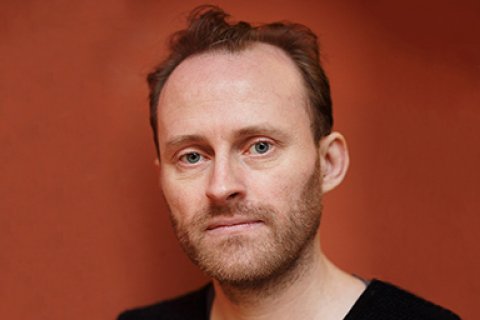
Geert Buelens focuses on the pivotal year 1972 (Limits to Growth debate, Stockholm), Dutch petroculture, and how writers and other artists deal with the environmental crisis.
Arjan van Dalfsen

Arjan van Dalfsen studies the human attitude towards animals and plants to get a better understanding of the history of both the knowledge and the cultural representation of animals/plants in the Netherlands, between 1550 and 2000. He does this by applying AI-driven computational methods to several corpora of historic, Dutch texts.
Kári Driscoll
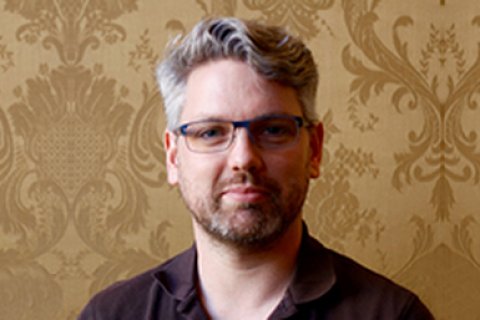
Kári Driscoll’s research focuses on human–animal relations in literature and culture. He is interested in the poetics of animality (zoopoetics), the zoo as a space of encounter and imagination, and imagining more-than-human communities in the age of the Anthropocene.
Susanne Ferwerda

Susanne Ferwerda is interested in the Blue Humanities and literature and art from Oceania. She asks how world waters and oceans inspire new imaginaries and alternative ways to think about the connections between the aftermath of colonialism and its climate effects.
Karin Fikkers

Karin Fikkers is interested in the power of stories in conveying the urgency of climate change and sustainable behavior. She tests these using empirical methods, and aims to understand how we can use stories to promote more sustainable behavior.
Johanna Hoorenman

As a lecturer in English literature Johanna Hoorenman is interested in American poetry and human-animal studies, and has published on the animal poetry of James Merrill, Galway Kinnell and Elizabeth Bishop.
Birgit Kaiser

Literature and the arts imagine ecologies of living. Birgit Kaiser’s research traces how (postcolonial, migratory and transcultural) literature contests human exceptionalism, demonstrates existential interdependence, aesthetically conveys this to readers (ecoliteracy), and helps imagining practices of selfhood within webs of diverse cohabitation.
Susanne Knittel

Susanne Knittel's current research focuses on the contemporary cultural imagination of genocide and ecocide. She explores how art and culture can help reveal the historical and structural links between violence against humans and violence against the environment that usually remain unseen.
Marjo van Koppen

Marjo van Koppen researches linguistic variation of (variants of) Dutch, with a current exploration into into human-animal communication. Investigating how domesticated animals communicate with us helps us rethink human-animal societies such that the perspective of the agentive animal is taken into account.
Wendela de Raat

Wendela de Raat’s PhD project focuses on the representation of human-animal relations in realistic Dutch children’s animal stories (1800 - present) and what these stories can teach us about changing views on animals in the Netherlands.
Ann Rigney
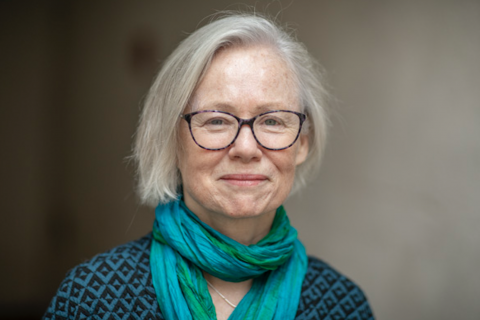
Ann Rigney is interested in the role played in climate activism by cultural memory, focusing on how legacy practices and stories about earlier generations of activists have been mobilised in recent campaigns.
Evelyne Shamier
Evelyne Shamier is preparing a PhD dissertation on representations of the sea in Neerlandophone literatures worldwide, through a transcontinental research prism and by a theoretical foundation in which blue ecocriticism, postcolonial and decolonial studies intersect.
Mia You
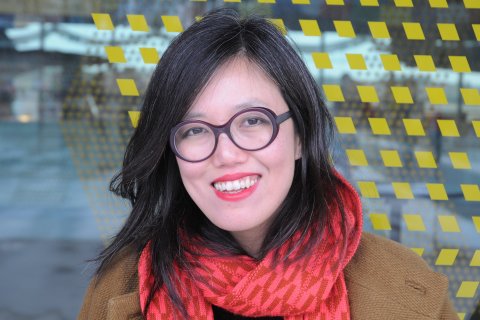
Mia You explores the intersection between ecolinguistics and ecopoetics, particularly via contemporary poets who embed traces and memories of the calls of endangered/extinct species into English. She is interested in how translingualism might be a compelling vehicle for imagining posthumanist ecologies.
Media and Culture Studies
Wouter Capitain
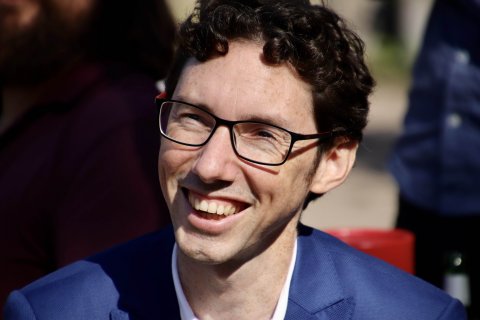
Musicologist Wouter Capitain researches how music is used in the popular arts to distinguish human from non-human animals. His case studies include several Disney films, George Orwell’s writings and the environmental album 'Songs of the Humpback Whale'.
Rick Dolphijn

Associate Professor at Media and Culture Studies Rick Dolphijn works on new materialism and posthumanism, material culture (food studies), and ecology. He is PI at 'Food2Gather' and 'IMAGINE: Contested futures of Sustainability'.
Layal Ftouni

Layal Ftouni's new research project, 'Ecologies of Violence: Affirmations of Life at the Frontiers of Survival', explores (the politics of) living at the boundaries with death (human and environmental) in conditions of war and settler colonialism, focusing on Syria and Palestine.
Dan Hassler-Forest
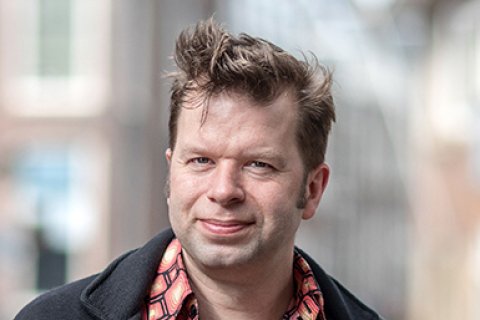
Dan Hassler-Forest specialises in the ways speculative fiction (science fiction, fantasy, horror) gives us ways to imagine alternative futures.
Eva Hayward

Bringing into conversation psychoanalysis, sexuality studies and life science, Eva Hayward studies the experimental designs and aesthetic practices of conservation science. Her current project, 'After Medusa', investigates the relationship between coral reef science, colonialism, and sexual difference.
Judith Keilbach
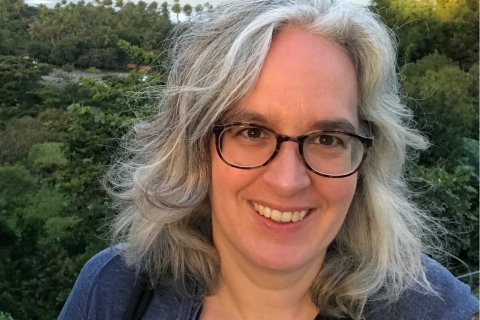
Judith Keilbach researches how film and television production can become more sustainable. This addresses questions of creativity and how labour is organised in the creative industries.
Eggo Müller

Eggo Müller's research and teaching in the area of Environmental Humanities addresses the inclusive transition to sustainable and healthy food systems. It focuses on the role of food discourses shaping our imagination of that transition.
Sandra Ponzanesi

Sandra Ponzanesi has published in the fields of media, postcolonial studies, digital migration and cinema with a focus on Postcolonial Europe from comparative and interdisciplinary perspectives. She is involved in projects such as 'CONNECTINGEUROPE', 'Postcolonial Intellectuals and their European Publics', and 'Postcolonial Studies Initiative'.
Joost Raessens

Joost Raessens' Green Media Initiative studies the environmental implications of media technologies, the representation of environmental issues (i.e. narratives, imaginaries) in media, media use by social change agents such as NGOs and activists, and the social-cultural impact of green media.
Kathrin Thiele

As a queer feminist theorist Kathrin Thiele's work centers on asymmetrical relational matters that shape our planetary condition. In her research, she emphasises the need for a critical focus on processes of de/humanization, a commitment to social justice and emancipatory politics within Environmental Humanities.
Marijke de Valck

Marijke de Valck works on transnational media cultures, media industries and art cinema. Within environmental media studies she focuses on development of sustainable practices for media production, circulation and use.
Sebastian Wedler

Sebastian Wedler works on the aesthetic imagination of musical romanticism and modernism, from historical, analytical and critical perspectives. His current research explores the ways in which the musical representation of nature is tied up with issues entrenched in post-Enlightenment thought.
Stefan Werning

Stefan Werning studies and compares epistemic and sociotechnical implications of different 'green media', particularly ecogames and digital media. Moreover, Stefan is interested in how media-making and creative critical practices complement a primarily theoretical engagement with sustainable futures.
History and Art History
Marloes Beers

Marloes Beers' main focus of research is the history of energy policy in European communities, including the interconnection of policies concerning different energy sources (fossils, nuclear, hydro and renewables).
Roberta Biasillo

Roberta Biasillo's research lies at the confluence of environmental history and political history. She has focussed on how forests, wetlands, and arid soil embedded in Italian liberalism and fascism. She is writing a history of Libyan desert.
Marjolijn Bol

Marjolijn Bol 's research intersects with historical studies of craft, knowledge, and the environment with a special focus on performative methods (reconstruction) and written sources on art technology. Her current research project DURARE explores a long durée history of durability in art.
Alison Boyd
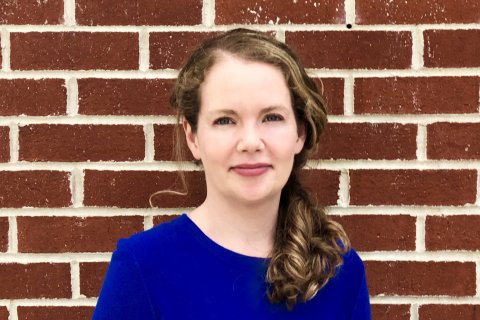
Alison Boyd researches modern and contemporary art. Her project, '"Your country? How came it yours?": Divergent Artistic and Political Claims for the 'Soil' in America in the 1930s-1940s' analyses 'soil' as a locus point for issues of ecology, race, gender, migration and politics.
Janna Coomans

Janna Coomans is a historian working on medieval and early modern urban environmental history and the history of public health (particularly in the Low Countries). She is especially interested in how environmental and material factors shape socio-political organisations and community politics.
Joost Dankers
As a historian and researcher of the corporate world in the twentieth century Joost Dankers’ passion is to translate questions from society to historical research. He has ample experience in initiating and organising research projects in the field of the Humanities.
Jessica Dijkman

Jessica Dijkman focuses on the resilience of societies in premodern Europe towards food shortages and nature-induced disasters in a wider sense. Jessica studies the role of markets and of non-market institutions (such as poor relief) in coping with such crises.
Sven Dupré

As a professor of history of art, science and technology, Sven Dupré is interested in the history and future of conservation, while seeking to foster an interdisciplinary dialogue to develop new strategies to conserve and care for cultural and natural heritage.
Swantje Falcke

Swantje Falcke studies international migration with a focus on questions of migrant integration and naturalisation as well as the role of macro-level determinants such as environmental, political, and demographic conditions for migratory movements.
Kate Frederick

Kate Frederick studies socio-economic transformations over the past two hundred years, with a particular interest in how local-level environmental, demographic, and institutional characteristics influenced diverse industrial development trajectories and socio-economic conditions across sub-Saharan Africa from the late-precolonial to early postcolonial eras.
Liesbeth van de Grift

Liesbeth van de Grift studies the history of political representation through the lens of rural, consumer and environmental governance in the twentieth century. Connecting international and environmental history, she is particularly interested in how the rise of notions such as ‘nature’ and ‘the environment’ has changed democratic ideas and practices.
Thijs Hagendijk

Thijs Hagendijk's research concerns the history of practical knowledge in the historical arts. In particular, he studies how problems of scarcity and developing notions of sustainability fostered innovation in energy-intensive arts such as glassmaking in the Early Modern period.
Kristian Mennen

Kristian Mennen is an environmental historian. His research focusses on the political aspects of nature conservation and environmental protection in the twentieth century. He is currently working on a book about the history of nature conservation in the Netherlands.
Maanik Nath

Maanik Nath is Assistant Professor in Economic and Social History. His work investigates interactions between climate, law and development in modern history. His book Capital Shortage, published with Cambridge University Press, analyses tropical ecologies and capital markets in South Asia.
David Onnekink
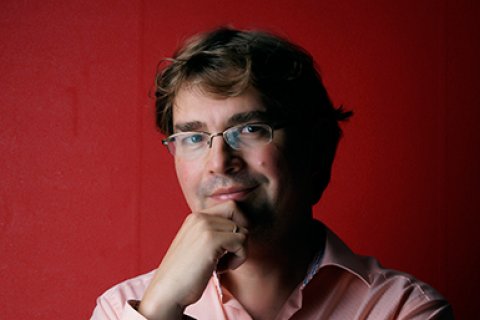
As Associate Professor of the early modern history of international relations David Onnekink is currently interested in the relationship between Christianity and the environment from 1500 to the present.
Gertjan Plets

Gertjan Plets is Associate professor in Cultural History and Anthropology. Trained as an anthropologist, he has studied environmental politics in Siberia and Groningen. He is particularly interested in how energy companies fund museums as part of their Corporate Social Responsibility strategy.
Joep Schenk

Interested in the history of international regime-building, through the lens of natural resource governance, a guiding question in Joep Schenk‘s research is how the rise of security and prosperity considerations on the political agenda changed perspectives and practices of international regime-building.
Alessandra Schimmel

Alessandra Schimmel is working on the history of the European consumer movement in the second half of the twentieth century. She is interested in how new ideas on the political agenda, such as environmental concerns and sustainable consumption, altered ideas and practices of consumption and consumer representation.
Johan Schot

Johan Schot is Professor of Global History and Sustainability Transitions at the Utrecht University Centre for Global Challenges. Professor Schot’s interests orientate around impact-driven interdisciplinary research that strives to accelerate long-term system change and a just transition towards sustainability.
Saskia Stevens

Saskia Stevens is an archaeologist and ancient historian and in her current research project, Constructing the Limes, she investigates the impact of the northern border of the Roman empire (the Lower Germanic Limes) on the landscape and human behaviour.
Thijs Weststeijn
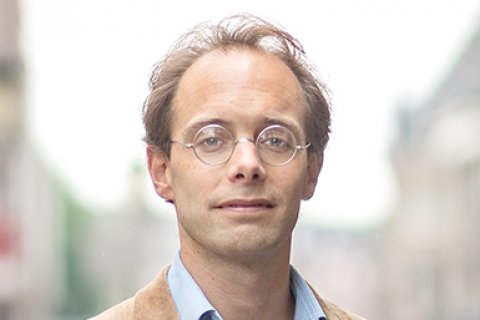
Thijs Weststeijn focuses on how cultural heritage is affected by the climate crisis.
Christian Wicke

Christian Wicke has worked on the history urban movements and cross-movement mobilisation, including the connection between urban and environmental movements. His favourite example are the Green Bans in Sydney during the 1970s. Christian has also worked on deindustrialisation and industrial heritage.
Philosophy and Religious Studies
Jos Philips

Jos Philips is an assistant professor in ethics and political philosophy and coordinator of the master’s in Applied Ethics. His research is on human rights, global justice and poverty, ethics concerning refugees, and climate ethics. Recently, he published Actualizing Human Rights: Global Inequality, Future People, and Motivation (Routledge 2020).
Peter Ben Smit

Peter Ben Smit works in theology and religion (biblical studies, ritual studies, gender and religion) and explores the (potential) influence of religious traditions on human attitudes vis-a-vis of food and the potential of religious tradition for reimagining human attitudes vis-a-vis of the non-human.
Naomi van Steenbergen

Naomi van Steenbergen works in the field of ethics and has published on climate change and more vulnerable countries, asking questions like what limits there might be to individual responsibility in a context of very great needs and harms.
Geosciences
Jeroen Oomen
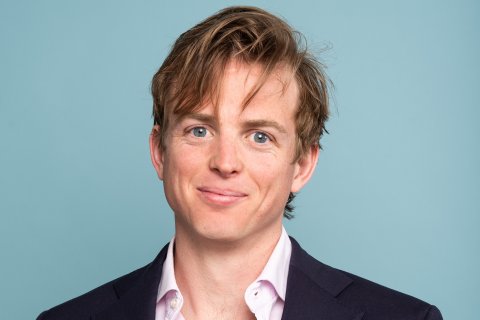
As an interdisciplinary scholar, Jeroen Oomen's main interest is in how knowledge is made, and the consequences of types of knowledge for social organisations, democracy, and power structures. He researches climate policy, geoengineering, and social theory, specifically relating to sustainability.
Science
David Baneke

David Baneke, Associate Professor in History of Science, is interested in expectations of science: how have people in the 19th and 20th century thought about what science could or could not do to solve the great problems of their age?
Mathijs Boom

Mathijs Boom studies the early modern imagination of Earth's history in the environmental and religious context of the Low Countries. More broadly, he is interested in the history of environmental thought and the Earth and climate sciences between 1600 and the present.
Stephen Snelders

Stephen Snelders is lecturer and researcher in the History and Philosophy of Science at the Freudenthal Institute (Faculty of Science). He is presently collecting materials for the writing of a non-anthropocentric or ecocentric history of the Netherlands.
Robert-Jan Wille

Robert-Jan Wille's expertise is in the global history of the in- and outdoors sciences, whether it is laboratory biology or atmospheric physics. His research shows how the environmental sciences themselves are rooted in environmental (and political) history.
UCU
Gerard van der Ree

Gerard van der Ree (they/them) works on the intersection of politics and the Anthropocene, combining philosophy with practical initiatives and Community Engaged Learning. Their focal point is the political representation of non-human life, through ‘parliament of things’ approaches such as the Zoöp initiative.
Veterinary Medicine
Floor Haalboom

Where did 'factory farms' come from and why are they so difficult to change? As an environmental and medical historian, Floor Haalboom is interested in the global environmental history of pig, poultry and dairy farms, and the power structures behind them.
Joachim Nieuwland

How do animals fit with our morality? Increasingly, this question requires engagement with ecology. Joachim Nieuwland focuses on both veterinary ethics, specifically within the framework of One Health, as well as broader moral questions about animals in socio-ecological transitions.

